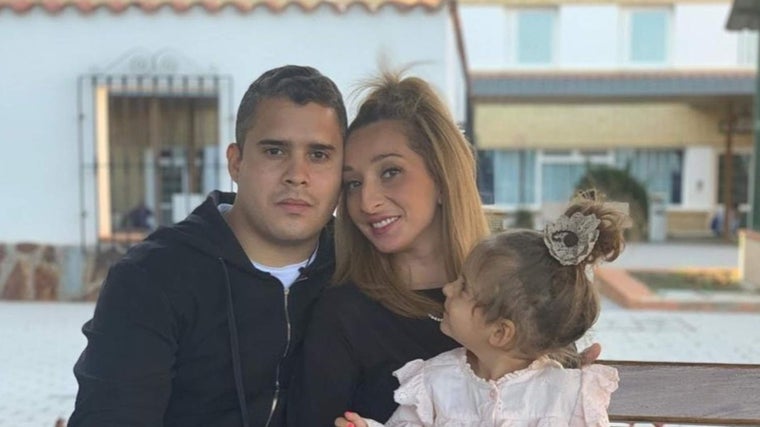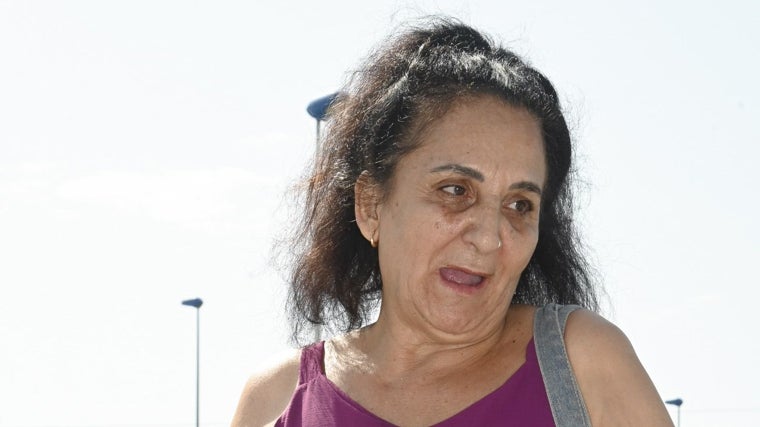Rocío's future sparks tensions between Michu's family and the Ortega Cano family.

It's been 25 years, four months, and nineteen days since Rocío Jurado and José Ortega Cano introduced the two children they had adopted in Colombia to the press. It was on November 30, 1999, when the singer and the bullfighter posed for nearly 50 reporters with José Fernando , then 6 years old, and Gloria Camila , 3, at their home in La Moraleja. "I hope that after this," said Jurado, "they have a life free from chaos and harassment ," the main theme of the photo shoot. A predisposition that failed to fulfill the couple's long-awaited desire to protect their children. From the moment they arrived, the little ones became the center of media attention and involuntary protagonists of the glossy press. Every step they took was scrutinized, and their lives filled hours and hours of television talk shows.
It seemed that with their new life in Spain, these children's fortunes would change forever. However, life dealt them a devastating blow just seven years later, with the death of "the eldest" on June 1, 2006, from pancreatic cancer. With her passing, the family was never the same.
In February 2012, upon reaching the age of majority, José Fernando began a long criminal record that still haunts him today. It began with minor offenses, such as expulsion from the Irish school where he studied for numerous absences, then being found guilty of assaulting and robbing a man while under the influence of drugs—for which he was sentenced to one year and nine months in prison. In March 2014, he voluntarily entered a detoxification center in Barcelona for the first time, from which he was expelled for violating the rules. He tried again at the López Ibor clinic in Madrid and shortly afterward at a new one in Albacete, all without success. In April 2017, he was arrested again for assaulting two officers. and since then he has been admitted to the San Juan de Dios psychiatric center in Ciempozuelos, where he is currently subject to a semi-freedom regime under which he has occasional permits on some weekends and is allowed to take daily walks around the town.
Throughout this time, his family has always been by his side, showing at all times that he has their support . In addition to his father and sister, José Fernando has been surrounded these years by María Rodríguez , better known as Michu , whom he met at a nightclub in the spring of 2013 and with whom he maintained a stormy relationship that even included a restraining order. Despite everything, in the summer of 2016 they announced that they were expecting their first daughter, who was born in May of the following year. The name chosen was María del Rocío , a clear tribute to his paternal grandmother.
 Michu and Jose Fernando with their daughter Rocío
social networks
Michu and Jose Fernando with their daughter Rocío
social networks
This Tuesday, July 8th, life dealt José Fernando another blow: the death of his partner of ten years and the mother of his daughter. Michu died at home due to a congenital heart condition for which she had undergone several surgeries. The young man received special permission to say goodbye to her and be reunited with his daughter.
With her death, Michu leaves Rocío, barely 8 years old, orphaned by her mother. Her custody now poses a headache for her family because, according to the law, it should go to the surviving parent—who in this case is the father—but due to the exceptional circumstances explained above, he is incapacitated. Now, "the minor's closest relatives can initiate the procedure to gain custody," Almudena Mendoza , a lawyer specializing in family law, explains to ABC. "But in the end, the judge decides, at the request of the Public Prosecutor's Office, among others, who intervenes on behalf of the minor, and they try to be as fair as possible and ensure that at least a minimal bond remains between father and daughter," she adds. "Normally, in these processes , a psychosocial test of the family unit is carried out, in which factors such as the emotional and physical attachment of the minor, the suitability of the candidate relative, the home, proximity to school, and other routines of the minor are studied. A set of circumstances that, when assessed, tip the balance in that favor." "That the minor feels the least possible impact, given the complicated situation per se," he explains.
"The girl is going to stay with me. She's been with me since she was a child, so the closest thing she has to me is me," said Inma , Michu's mother, firmly upon leaving the funeral home in Arcos de la Frontera. "My wish is for things to happen on their own. (...) It's a matter for the family and a matter of handling it however we can," said Ortega Cano, the girl's paternal grandfather.
 Inma, Michu's mother
gtres
Inma, Michu's mother
gtres
"Right now, no one in her family has priority over other members," the lawyer clarifies. "It's another matter whether they can agree on a series of provisional measures based on what they believe. But no definitive measures will be agreed upon until the Public Prosecutor's Office has carefully studied the report," she adds. "Ultimately, what justice will do is place the minor in the most suitable situation for her development. But the final say rests with the judge," she concludes.
As far as we know, Rocío always lived in Cádiz with her mother and her maternal family. However, in recent years she also maintained a very good relationship with her paternal family. Apparently, Michu has said that, if anything were to happen to her, she wanted her daughter to live with the Ortega Cano family, as revealed by Kike Calleja on 'Vamos a Ver'. And, as was revealed on the same program, the bullfighter would have no problem taking care of the girl, so he would become her legal guardian. And he wouldn't be the only person in her care. He also takes care of José Fernando and his young son José María , for whom he pays a monthly allowance to his ex-wife Ana María Aldón and whose studies and needs he takes care of, in addition to his own expenses and his house. Added to all this are the expenses of his granddaughter.
The bullfighter would have no problem taking on this new situation, as he maintains three active companies and several properties, which represent a significant net worth. He owns the house in Madrid where he lives, located in a residential area north of the city. He also owns three commercial properties north of Madrid, two of which are rented out almost permanently, which earn him a monthly profit, and an apartment in Costa Ballena (Cádiz), where he spends his summers. Ultimately, taking care of the expenses related to his granddaughter shouldn't be a problem for him. Beyond that, he will have to consider the little girl's well-being.
Hours after burying Michu, his sister Tamara spoke to the cameras of 'TardeAR'. The young woman admitted that she was "upset" with the attitude of Ortega Cano's family: "Well, honestly, it's average. I'm a little upset because, of course, they're gone. I think the biggest thing is that they should have been there a little longer, also for Rocío. I see things as very distant," she noted, noting that during the funeral home, "they were on one side and we were on the other. The day before, we were together, but later at the funeral home, nothing like that, very distant."
Yesterday, the young woman went directly to the set of the television program to talk about the loss of her sister and the problems that arise from now on with little Rocío's paternal family: " They are the ones who have to get in touch and take care of that girl too . My sister was the one who connected with the girl. They haven't bothered to go to get the girl this Christmas; they don't know what she needs, or what school she's at. It's all been my sister," she said. And she harshly attacked Gloria Camila: "She's never taken care of her; she could have cared more. My sister would go to Madrid and take the girl to her. Now my sister isn't here. Is Gloria going to take care of her?" she stated. "Yesterday she left after burying Michu; she has exams. I'm also studying, I have work and a daughter. I'm worrying about the girl staying in the same school, who will pick her up, if something is missing. Not coming and going to a concert," she continued.
ABC.es




%3Aformat(jpg)%3Aquality(99)%3Awatermark(f.elconfidencial.com%2Ffile%2Fbae%2Feea%2Ffde%2Fbaeeeafde1b3229287b0c008f7602058.png%2C0%2C275%2C1)%2Ff.elconfidencial.com%2Foriginal%2F948%2F91c%2Feb2%2F94891ceb2b234f480b2a348fa2c86eb0.jpg&w=1280&q=100)
